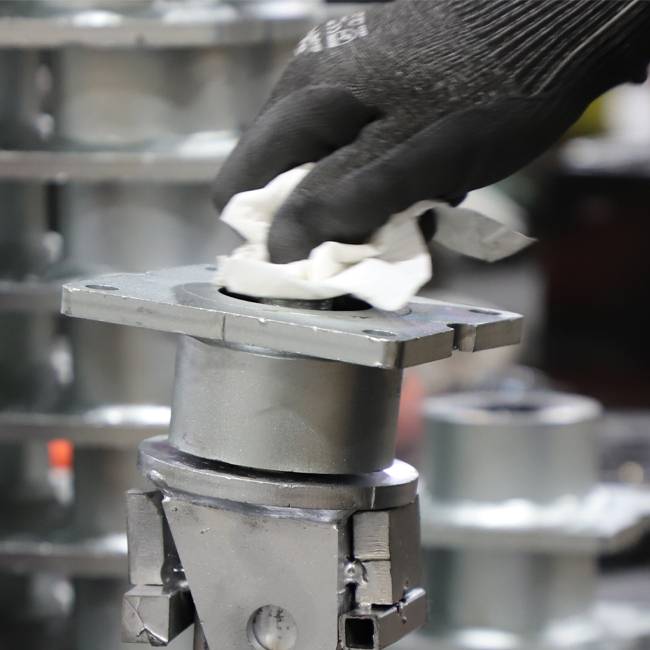

We often hear from consumers who have a vexing challenge to solve: How do I extend the life of my casters in an environment where debris is not just an occasional hazard, but a constant presence?
Finding a caster wheel that can stand up to the toughest factory conditions needn’t be a futile exercise. Certainly, there are combinations of materials that can promote debris-resistance while improving durability.
In making the right selection, it’s important to take a look at your manufacturing environment from four perspectives (you can read more about the specific types of manufacturing environments in this blog) :
After considering the four factors that impact caster life in an industrial or aviation application, the best solution often lies in specialty polyurethane wheels, which are manufactured to offer the twin benefits of optimizing debris resistance and longer wheel life.
At Caster Concepts, we use two types of tear resistant (T/R) polyurethane in caster wheel manufacturing – 85A, and 95A (as measured by a durometer). T/R polyurethanes are designed and engineered to deflect any debris, such as metal shavings from CNC machines. Polyurethane wheels can also be engineered to repel bolts, screws, nuts and anything else that may embed itself in other types of polyurethane.
What are your biggest headaches caused by the effects of debris on caster wheels?